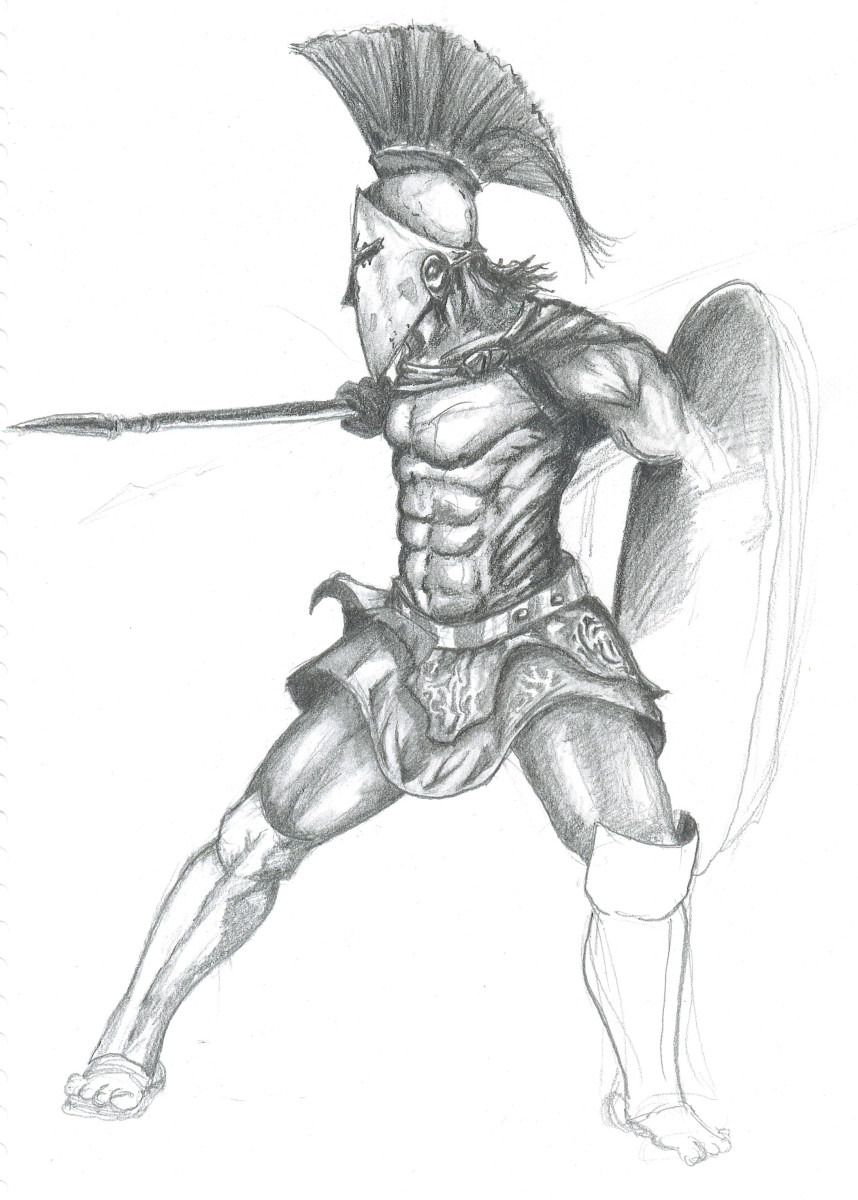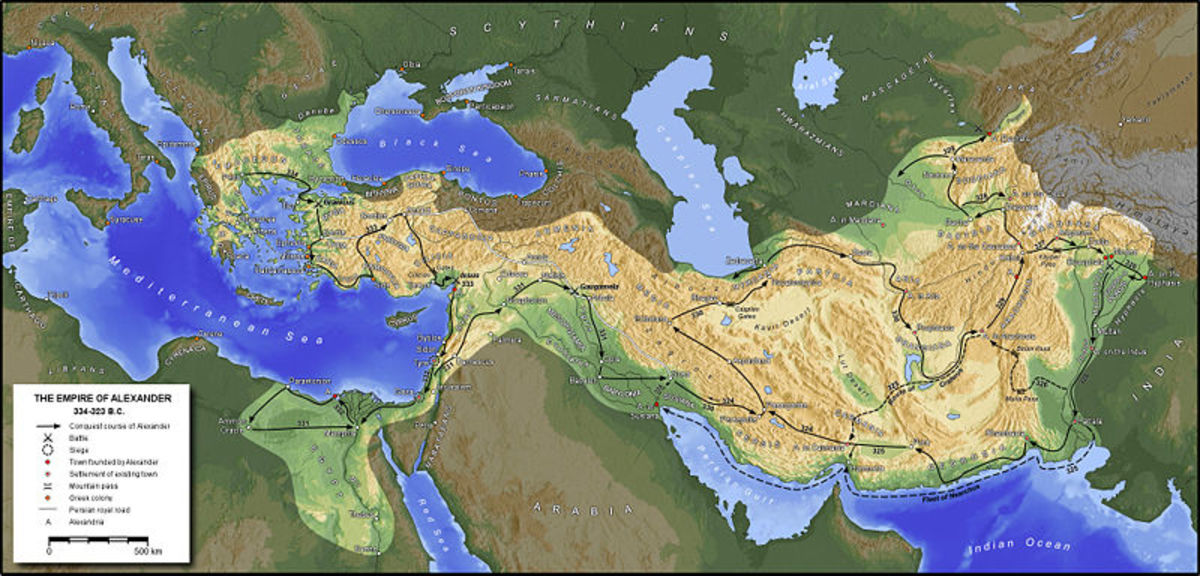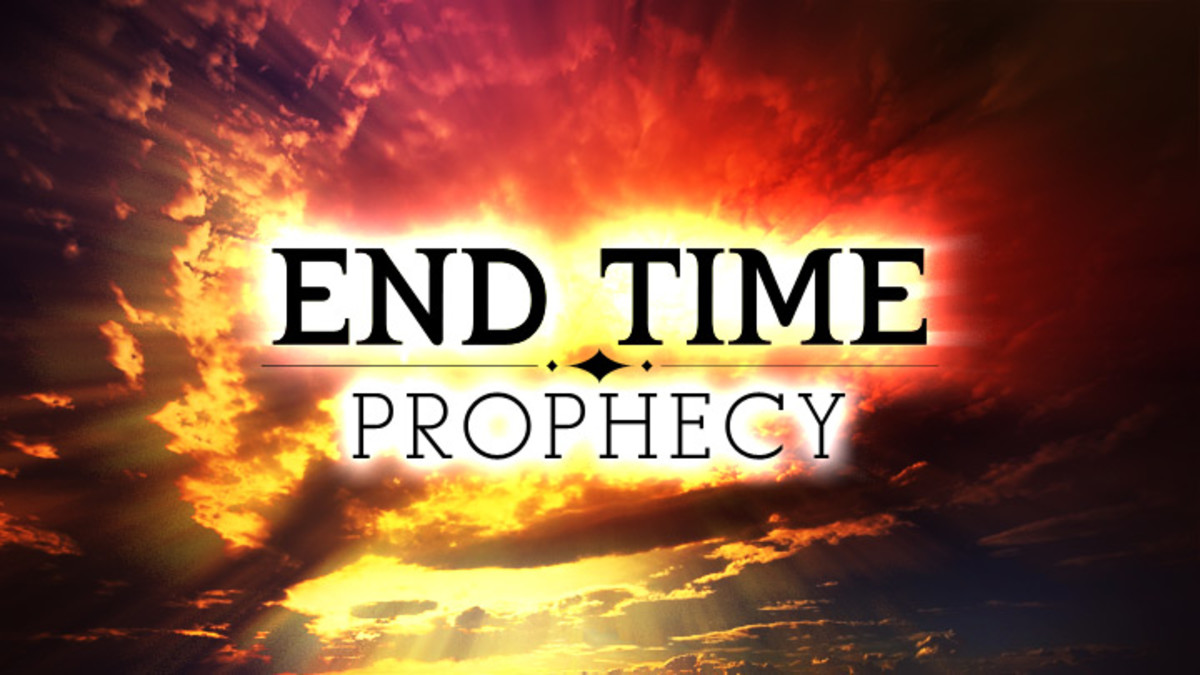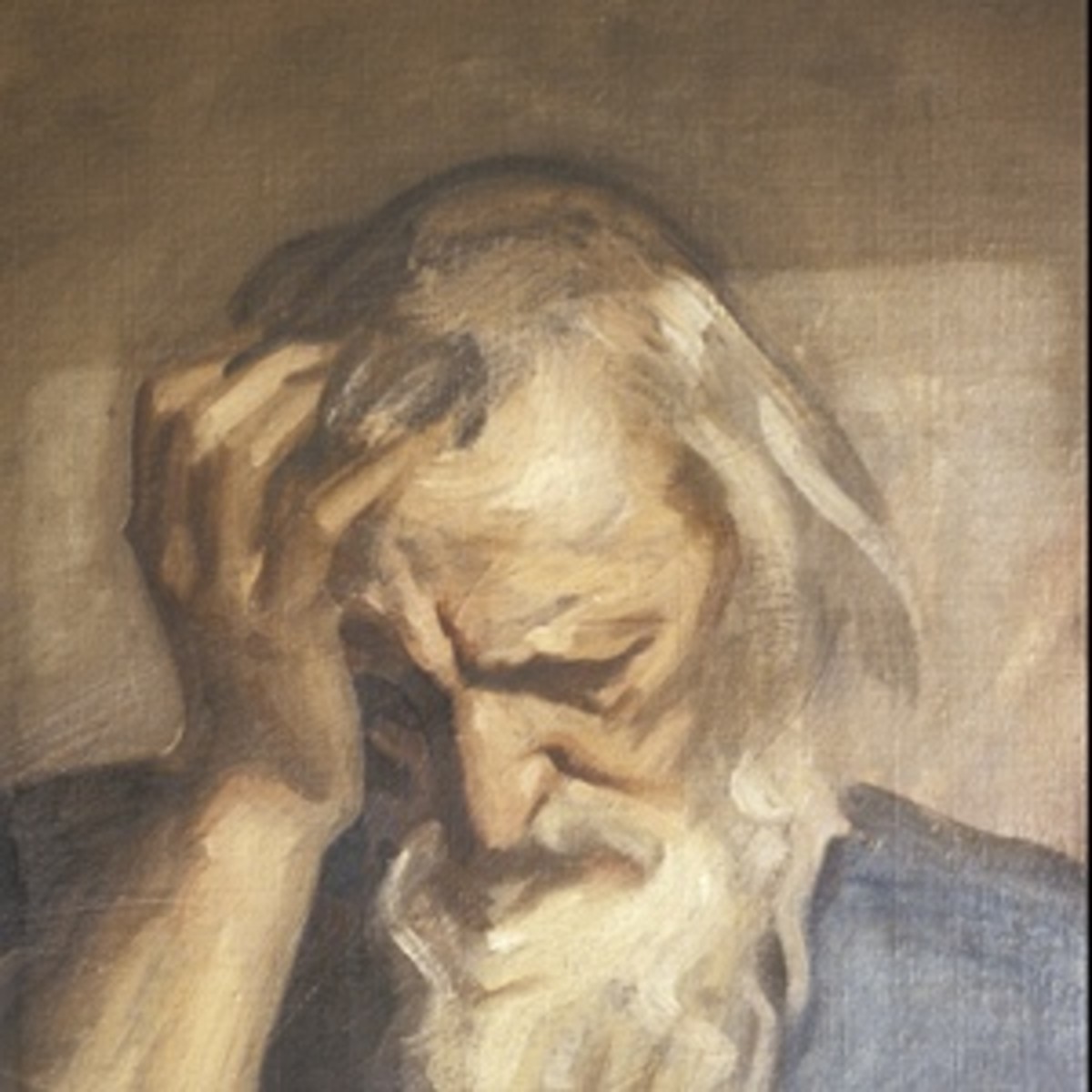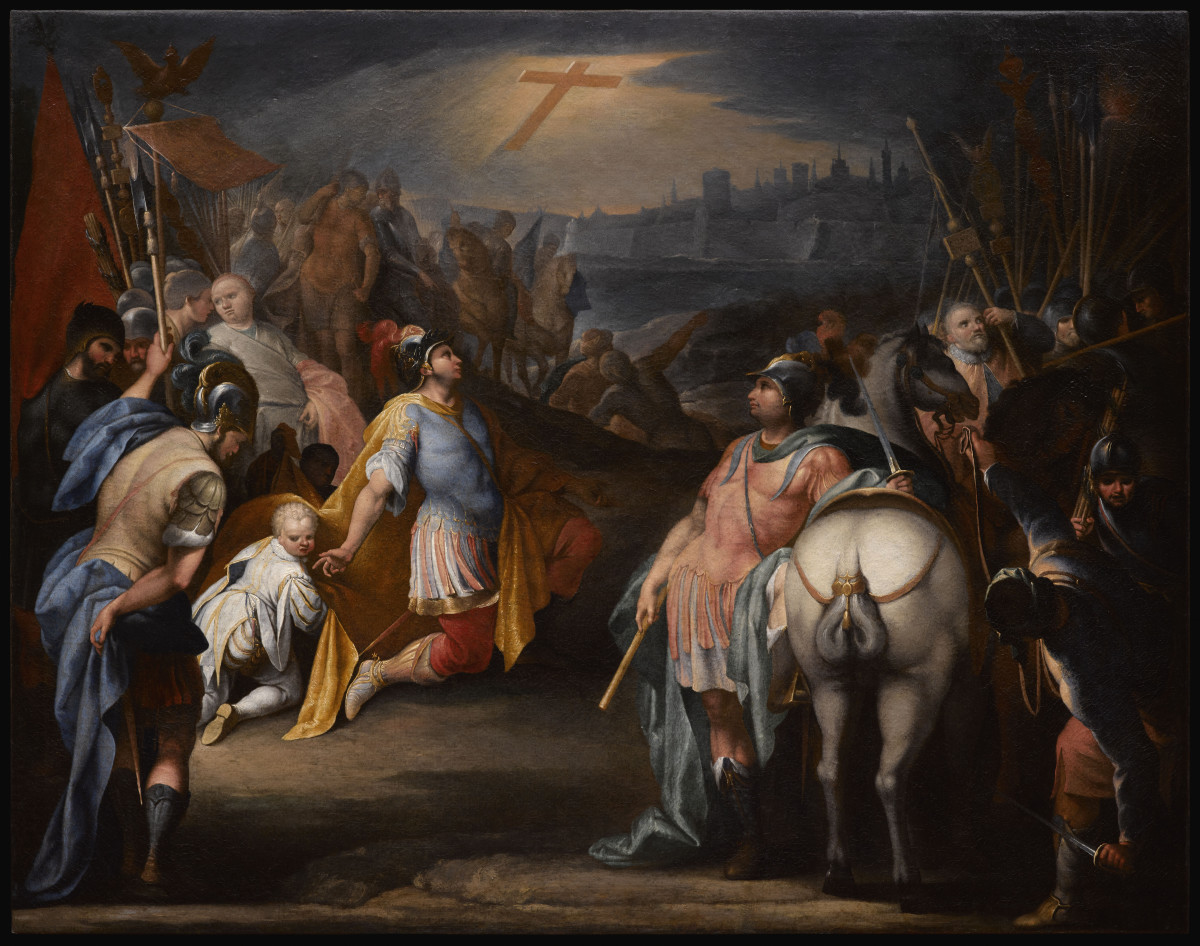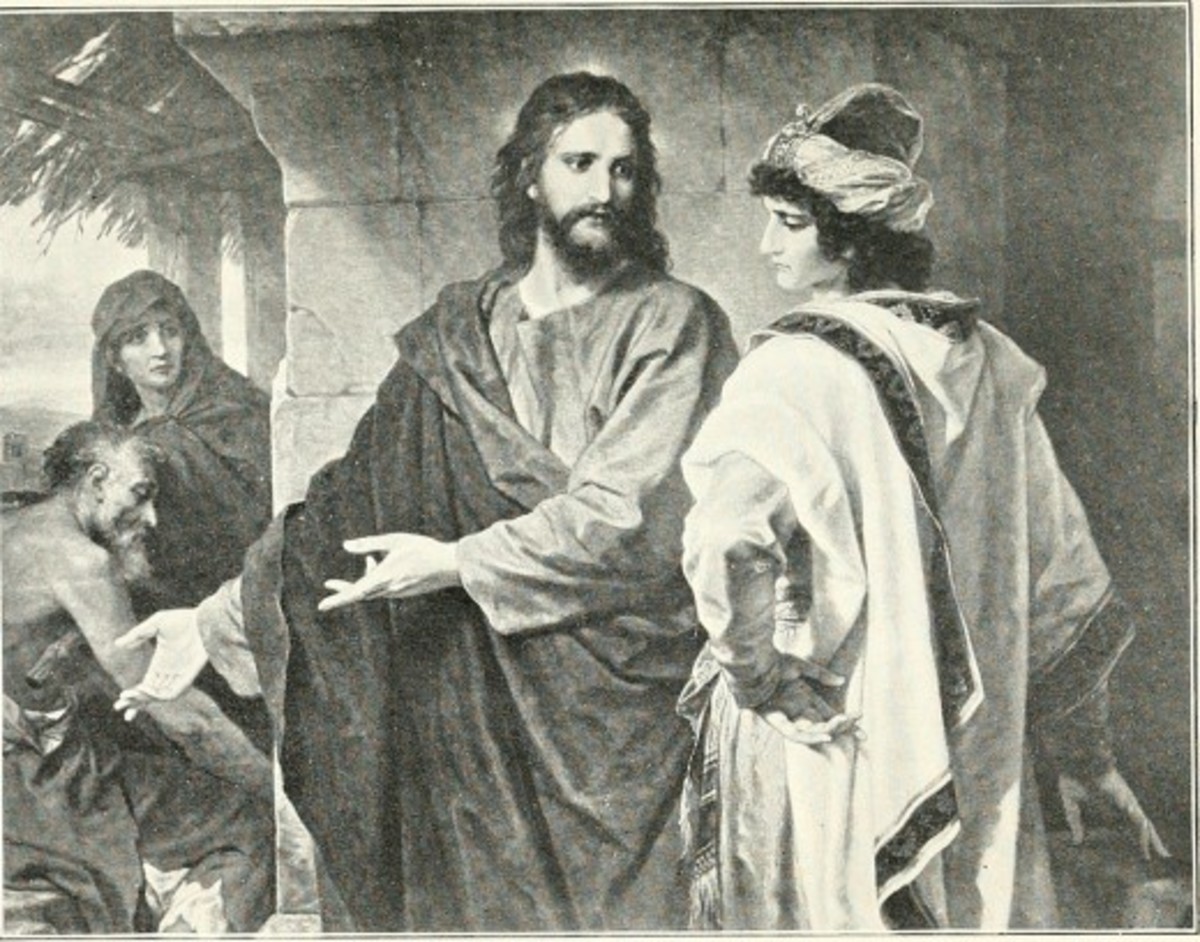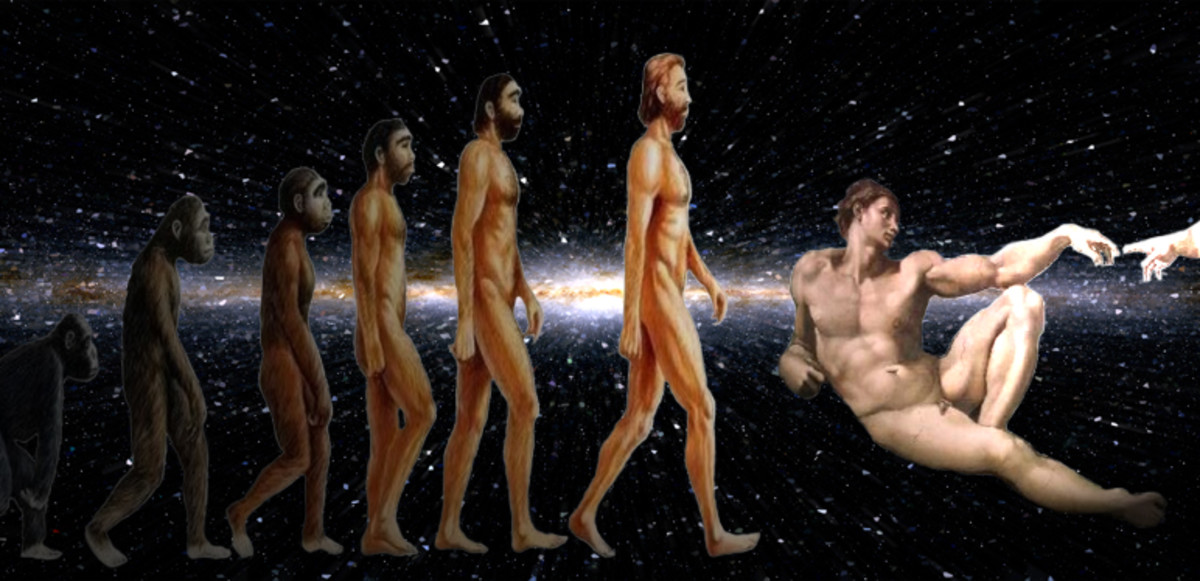Reliability of the Bible: Daniel Predicted the Rise of Antiochus IV Epiphanes
No Ordinary Book
Unlike other religious books the Bible was written over a long period of time by multiple authors in diverse languages and cultures. In fact, it is more a library than a book comprising a total of 66 books, 39 in the Old Testament and 27 in the New Testament. Yet its unifying message of salvation bears testimony that these men were inspired by the same one true God.
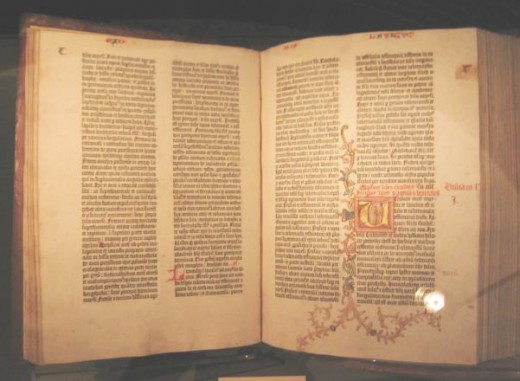
Predictive Prophecy
A fascinating phenomena about the Bible is that it contains true (predictive) prophecy, events sometimes foretold centuries before their occurrence. Most prophecies are related to the coming of the Messiah ('the anointed one' or 'Christos' (Greek)). Almost eight centuries before the birth of Jesus Christ the prophet Micah had predicted that the Messiah would come from Bethlehem Ephrathah (Micah 5:2). Even before that time it had been prophecied that the Messiah would be a descendent of the tribe of Judah (Genesis 49:10), just as it then came to pass. The crucifixion of Christ was anticipated by the prophet Isaiah (chapter 53) writing in the late eight-century B.C. in such detail that liberal scholars were forced to date Isaiah, or at least parts of his book, to the first century AD. That is, until the dead sea scrolls of Qumran provided unmistakable proof for a pre-crucifixion date for the entire book of Isaiah.
To critical scholars of the Bible predictive prophecy is a thorn in the eye, something that according to their reasoning, by presupposition cannot exist. They therefore tend to avoid the issue by dating prophetic writings late, claiming they're history written in prophetic style. By postponing the date of writing they unwillingly admit that if events would come to pass centuries after their prediction (excluding the possibility of happening simply by chance) a supernatural agent of some kind would have to be involved.
It's Not All About Predicting the Future
It is noteworthy that according to the Bible the effective occurrence of a predicted event is by no means the only criteria to determine the veracity of a particular prophet. A certain prophet could only be sent from God as long as his teachings were in line with the Word of God (as known up to that time) and as long as he encouraged the adoration of the one true God:
"If a prophet or a dreamer of dreams arises among you and gives you a sign or a wonder, and the sign or wonder that he tells you comes to pass, and if he says, 'Let us go after other gods,' which you have not known, 'and let us serve them,' you shall not listen to the words of that prophet or that dreamer of dreams. For the LORD you god is testing you, to know whether you love the LORD your God with all you heart and with all you soul." (Deuteronomy 13:1-3)
The Book of the Prophet Daniel Chapter 8
One striking peace of predicted prophecy already fulfilled in history comes from the prophet Daniel. Of noble descent, Daniel was exiled from Judah as a young man during the deportation of 605 B.C. and then served at high level at the court of the Babylonian Empire and later also the Medo-Persian Empire. In the third year of the Babylonian king Belshazzar (about 550 B.C.) he had a vision as reported in chapter 8 of his book:
Daniel's Vision of the Ram and the Goat
Daniel 8:1: In the third year of the reign of King Belshazzar a vision appeared to me, Daniel, after that which appeared to me at the first.
2 And I saw in the vision; and when I saw, I was in Susa the capital, which is in the province of Elam. And I saw in the vision, and I was at the Ulai canal.
3 I raised my eyes and saw, and behold, a ram standing on the bank of the canal. It had two horns, and both horns were high, but one was higher than the other, and the higher one came up last.
4 I saw the ram charging westward and northward and southward. No beast could stand before him, and there was no one who could rescue from his power. He did as he pleased and became great.
5 As I was considering, behold, a male goat came from the west across the face of the whole earth, without touching the ground. And the goat had a conspicuous horn between his eyes.
6 He came to the ram with the two horns, which I had seen standing on the bank of the canal, and he ran at him in his powerful wrath.
7 I saw him come close to the ram, and he was enraged against him and struck the ram and broke his two horns. And the ram had no power to stand before him, but he cast him down to the ground and trampled on him. And there was no one who could rescue the ram from his power.
8 Then the goat became exceedingly great, but when he was strong, the great horn was broken, and instead of it there came up four conspicuous horns toward the four winds of heaven.
9 Out of one of them came a little horn, which grew exceedingly great toward the south, toward the east, and toward the glorious land.
10 It grew great, even to the host of heaven. And some of the host and some of the stars it threw down to the ground and trampled on them.
11 It became great, even as great as the Prince of the host. And the regular burnt offering was taken away from him, and the place of his sanctuary was overthrown.
12 And a host will be given over to it together with the regular burnt offering because of transgression, and it will throw truth to the ground, and it will act and prosper.
13 Then I heard a holy one speaking, and another holy one said to the one who spoke, "For how long is the vision concerning the regular burnt offering, the transgression that makes desolate, and the giving over of the sanctuary and host to be trampled underfoot?"
14 And he said to me, "For 2,300 evenings and mornings. Then the sanctuary shall be restored to its rightful state." (Dan 8:1-14)
The Interpretation of the Vision
15 When I, Daniel, had seen the vision, I sought to understand it. And behold, there stood before me one having the appearance of a man.
16 And I heard a man's voice between the banks of the Ulai, and it called, "Gabriel, make this man understand the vision."
17 So he came near where I stood. And when he came, I was frightened and fell on my face. But he said to me, "Understand, O son of man, that the vision is for the time of the end."
18 And when he had spoken to me, I fell into a deep sleep with my face to the ground. But he touched me and made me stand up.
19 He said, "Behold, I will make known to you what shall be at the latter end of the indignation, for it refers to the appointed time of the end.
20 As for the ram that you saw with the two horns, these are the kings of Media and Persia.
21 And the goat is the king of Greece. And the great horn between his eyes is the first king.
22 As for the horn that was broken, in place of which four others arose, four kingdoms shall arise from his nation, but not with his power.
23 And at the latter end of their kingdom, when the transgressors have reached their limit, a king of bold face, one who understands riddles, shall arise.
24 His power shall be great--but not by his own power; and he shall cause fearful destruction and shall succeed in what he does, and destroy mighty men and the people who are the saints.
25 By his cunning he shall make deceit prosper under his hand, and in his own mind he shall become great. Without warning he shall destroy many. And he shall even rise up against the Prince of princes, and he shall be broken--but by no human hand.
26 The vision of the evenings and the mornings that has been told is true, but seal up the vision, for it refers to many days from now."
27 And I, Daniel, was overcome and lay sick for some days. Then I rose and went about the king's business, but I was appalled by the vision and did not understand it. (Dan 8:15-27)
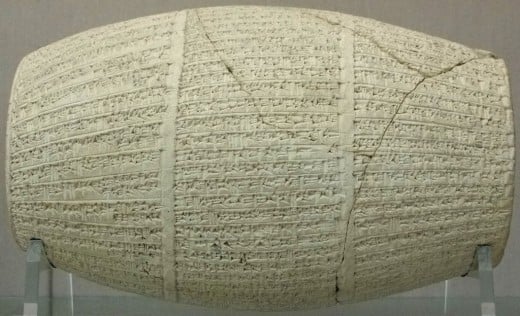
Date of the Vision
The prophecy is said to be given 'in the third year of the reign of King Belshazzar' (8:1). For a long time historians had been puzzled by the (otherwise unknown) name of Belshazzar, as Nabonidus was considered the last king of Babylon. Then in the 19th century archeology unearthed the Nabonidus Cylinder that recounts how Nabonidus entrusted his oldest son Belshazzar with the kingdom. Scholars agree this must have been about 553 B.C., Daniel's vision was therefore given around the year 550 B.C.
Rise of the Medo-Persian Empire
The ram with two horns in the vision stands, as the interpretation clearly states, for the Medo-Persian Empire. As detailed in the vision, which speaks of two high horns but one being higher and the higher coming up last (8:3), so the Greek historians Herodotus reports that at first the Medes were superior. But during the reign of their king Astyagas the Persians revolted and Cyrus became ruler over both Media and Persia. Just as the vision says that no beast could withstand the ram charging west-, north- and southward, so the dual power of Medo-Persia conquered many nations. The Persian king Darius, who succeeded Cyrus and his son Cambyses, could claim in the Behistum inscription to 'rule over a host of nations'.
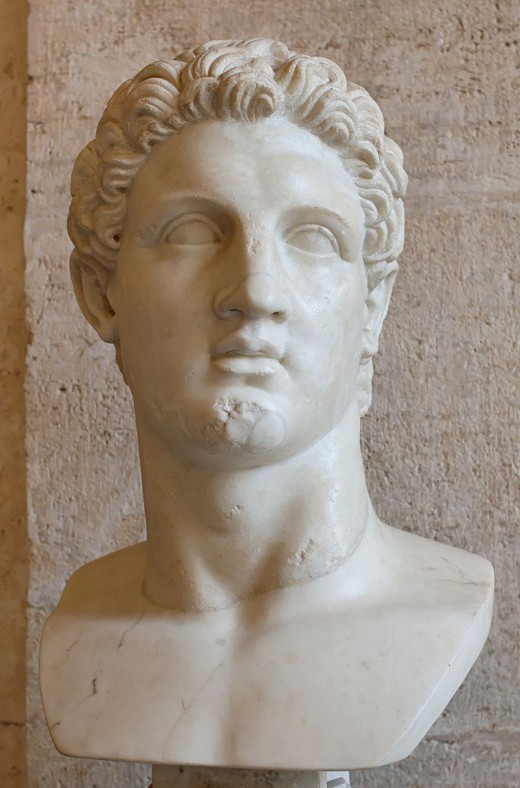
The Greek Empire
But times change and empires come and go. So the mighty Medo-Persian Empire was swiftly overpowered by the Greeks, in the vision symbolized by the male goat coming 'from the west across the face of the whole earth, without touching the ground' (8:5). According the interpretation given by the angel Gabriel "the goat is the king of Greece. And the great horn between his eyes is the first king." (8:21). Alexander the Great was renown for the swiftness of his conquests and is considered by some historians the most successful military commander of all time, no doubt, he has to be identified with great horn of the goat. The Roman historian Quintus Curtius Rufus writing in the first century AD states how Alexander fought Darius defeating the Medo-Persian Empire. After Alexander's sudden death no definite heir was available. Precisely as predicted by Daniel his reign was divided into four parts. Along with Quintus Curtius the ancient historian Plutarch recounts how the Greek Empire of Alexander the Great was divided into four smaller reigns among his generals: Seleucus (Asia), Ptolemy (Egypt), Lysimachus (Thrace) and Antipater's son Cassander (Macedonia, including Greece).
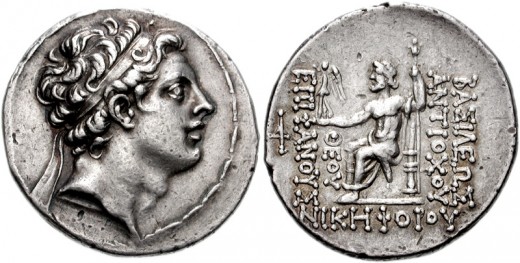
The Little Horn (Antiochus IV Epiphanes)
According to Daniel's vision out of these four conspicuous horns then came a 'little horn' (8:9) which grew exceedingly great toward the glorious land and even to the host of heaven. It then threw down to the ground some of the host and some of the stars and trampled on them. Scholars and historians are virtually unanimous in recognizing this little horn as the eighth ruler of the Seleucid dynasty, Antiochus IV Epiphanes (ruled 175-164 B.C.). The stars thrown down and trampled upon refers to the thousands of Jews executed during his reign, beginning with the assassination of the high priest Onias III in 170 B.C. Antiochus became 'great as the Prince of the host' (8:11), even assuming the title 'Theos Epiphanes', that is god manifest. Coins from his reign have survived bearing the inscription 'Baileos Antiochou Theou Epiphaniou', that is king Antiochus, god manifest.
The prophet's vision further reports that the little horn would take away the regular burnt offerings and overthrow the sanctuary (8:11-13). The sinister Antiochus IV was a tyrant who tried to unify and increase his reign by forcing his subjects to adopt Greek cultural and religious practices. Upon returning from his war against Ptolemy in Egypt, Antiochus entered Jerusalem plundering and defiling the temple by sacrificing a pig on the altar and placing an object sacred to Zeus in the Holy of Holies. Antiochus fumed against the Most High and did everything in his power to destroy the people of God and their sanctuary. The apocryphal book of First Maccabbees refers to the desecration of the temple as the 'abomination of desolation' and recounts how Antiochus ordered the Jews upon threat of death to forsake their religious practices:
Persecution Under Antiochus IV in 1 Maccabees
1 Maccabees 1:44:For the king had sent letters by messengers unto Jerusalem and the cities of Juda that they should follow the strange laws of the land,
45 And forbid burnt offerings, and sacrifice, and drink offerings, in the temple; and that they should profane the sabbaths and festival days:
46 And pollute the sanctuary and holy people:
47 Set up altars, and groves, and chapels of idols, and sacrifice swine's flesh, and unclean beasts:
48 That they should also leave their children uncircumcised, and make their souls abominable with all manner of uncleanness and profanation:
49 To the end they might forget the law, and change all the ordinances.
50 And whosoever would not do according to the commandment of the king, he said, he should die.
51 In the selfsame manner wrote he to his whole kingdom, and appointed overseers over all the people, commanding the cities of Juda to sacrifice, city by city.
52 Then many of the people were gathered unto them, to wit every one that forsook the law; and so they committed evils in the land;
53 And drove the Israelites into secret places, even wheresoever they could flee for succour.
54 Now the fifteenth day of the month Casleu, in the hundred forty and fifth year, they set up the abomination of desolation upon the altar, and builded idol altars throughout the cities of Juda on every side;
55 And burnt incense at the doors of their houses, and in the streets.
56 And when they had rent in pieces the books of the law which they found, they burnt them with fire.
57 And whosoever was found with any the book of the testament, or if any committed to the law, the king's commandment was, that they should put him to death.
58 Thus did they by their authority unto the Israelites every month, to as many as were found in the cities.
59 Now the five and twentieth day of the month they did sacrifice upon the idol altar, which was upon the altar of God.
60 At which time according to the commandment they put to death certain women, that had caused their children to be circumcised.
61 And they hanged the infants about their necks, and rifled their houses, and slew them that had circumcised them.
62 Howbeit many in Israel were fully resolved and confirmed in themselves not to eat any unclean thing.
63 Wherefore the rather to die, that they might not be defiled with meats, and that they might not profane the holy covenant: so then they died.
64 And there was very great wrath upon Israel.
(1 Maccabees 1:44-64)
Death of Antiochus
Antiochus IV Epiphanes threw the truth to the ground, acted and prospered for a while (Dan 8:12), but eventually his end came. In Daniel's vision 2300 evenings and mornings had been envisaged for the restoration of the sanctuary, 2300 days that correspond to slightly more than 6 years and would fit the period of the assassination of the high priest Onias III in 170 AD and Antiochus' death and the end of his reign in 164 AD.
According to Daniel the little horn shall eventually "be broken - but by no human hand." (Dan 8:25) He who had considered himself 'god manifest' and risen against the Prince of princes was broken without human means. Antiochus IV Epiphanes did neither die in battle nor was he assassinated by conspirators, as numerous sources attest. Among the Greek historians Polybius attributes his death to madness while Diodorus Siculus speaks of certain apparitions that drove him mad. The Roman historian Appian reports his death was caused by wasting disease. Josephus, a first century historian of Jewish origins but writing for a Roman audience, states Antiochus died due to distemper and madness, because he could not bear the military defeats he had suffered. According to Josephus, Antiochus also summoned his friends when he sensed that death was close, admitting that all this had come over him because he had defiled the temple and persecuted the people of God (Antiquities 12:9:1).
Daniel knew this place firsthand
Dating of the Book of Daniel
Although Daniel himself states otherwise, critical scholars routinely date his writing to the II B.C. because of the accuracy with which he describes historical events. To the skeptic with his naturalistic assumptions it seems simply impossible that Daniel could have known four centuries in advance what would come to pass in 164 B.C. Yet this reasoning is based on the questionable assumption that a supernatural agent or God does not exist. Serious researchers should at least consider the possibility of predictive prophecy based on the evidence of facts.
Ultimately the dating of the book of Daniel is crucial to decide the issue of prophecy or history. Is there evidence that the book of Daniel was indeed written during his lifetime in the VI century B.C.?
A Forgotten King
- Reliability of the Bible - Who was King Belshazzar?
The Babylonian king Belshazzar had long been forgotten by secular history, his name being preserved but in the Old Testament. Then an archeological find established his identity, confirming the Bible's historical accuracy and reliability.
- there is for one the evidence from Daniel himself who on diverse occasions mentions specific time references and even explicitly states to have written the vision received (Dan 7:2). Cultural details given in the book of Daniel pertain to the Babylonian and Medo-Persian period and could hardly have been imagined by a II century B.C. writer
-
until the discovery of the Nabonidus Cylinder published in 1882 the name of Belshazzar was unknown to historians. Only when the co-regency of Nabonidus and his firstborn son Belshazzar at the closure of the Babylonian Empire was revealed, it became clear that the name of Belshazzar had been exclusively preserved in the book of Daniel, handed down faithfully through the ages. Where could a II century B.C. writer gotten this information from? (on this issue also check out: http://markeli.hubpages.com/hub/Belshazzar)
- Flavius Josephus, the Roman historian of Jewish origin, lists the book of Daniel among the ancient authoritative scriptures written before 424 BC, i.e. the end of the reign of Artaxerxes (Antiquities 10:10:6 and Against Apion 1:8). Josephus also reports that when the book of Daniel was shown to Alexander the Great when he entered Judea he identified himself as the Greek conquering the Medo-Persian Empire (Antiquities 11:8:5). In analyzing Daniel chapter 8 Josephus identifies the little horn with Antiochus Epiphanes explicitly stating Daniel had written these things many years before they came to pass (Antiquities 10:11:7)
- parts of the book of Daniel were found at Qumran which dates to the Maccabees period (II century B.C.). These scrolls would hardly have been found among the ancient and copied writings if they had been compiled just around that time. Furthermore, an Aramaic Daniel scroll from Qumran is even likely to be dated pre-second-century
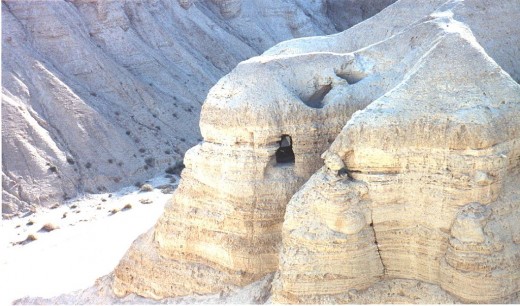
Something to Think About
The VI century B.C. book of the prophet Daniel has been proven by history to be reliable and trustworthy. Chapter 8 of Daniel is just one example that reminds us that the Bible needs to be taken seriously, especially in what it has to say about man and his relationship with God.
A book like any other?
What do you think the Bible is?
This content is accurate and true to the best of the author’s knowledge and is not meant to substitute for formal and individualized advice from a qualified professional.
© 2014 Marco Pompili

